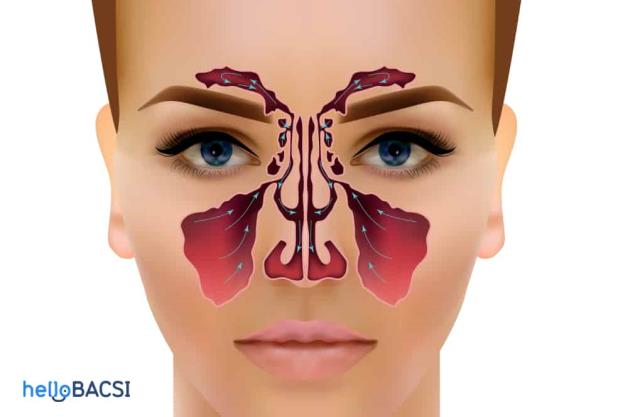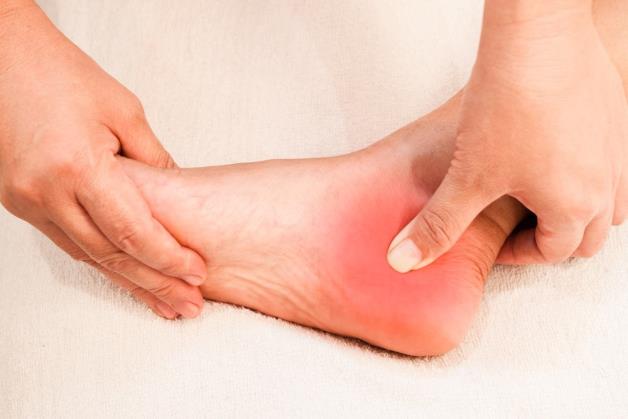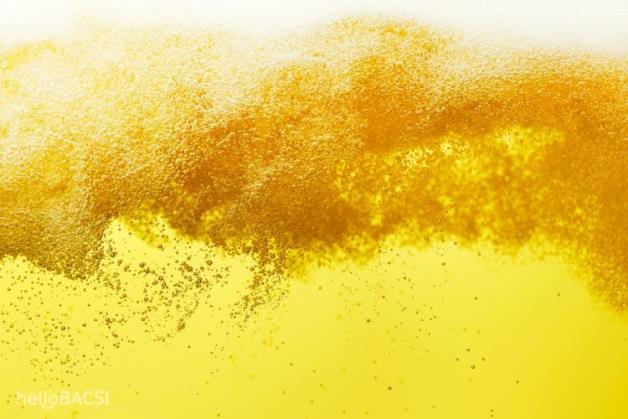When you have inflammation or infection of your tonsils, your doctor will perform a tonsillectomy for you. This is still a widely accepted treatment, but doctors think the tonsils have a bigger effect on digestion than people think.
In addition, when white spots appear on the tonsils, the tonsils are also playing a role in helping to fight infection. These white spots are usually pus that forms when white blood cells destroy bacteria and viruses that attack tissues in the throat.
You can treat these symptoms at home, but in some severe and persistent cases, you should see a doctor for definitive treatment.
White streaks on the tonsils can be a sign of strep throat, infectious mononucleosis, or other infectious conditions. You can treat these symptoms at home with simple methods. However, if the condition persists, you should see a doctor for prompt treatment.
In addition, if suddenly your tonsils appear white streaks, you should also see a doctor to know your condition. However, you can easily treat it with non-surgical methods to remove white streaks from your tonsils. At the same time, you should also actively learn about the causes of white spots on the tonsils and the appropriate treatment.
Symptom
What are the main causes of white spots on your tonsils?
- Tonsillitis: Occurs when your tonsils become infected by a viral or bacterial attack. As the tonsils begin to fight the infection, they secrete white pus-filled lumps that form multiple white streaks. Early tonsillitis can cause headaches, fever, or stiff neck.
- Tonsillitis "stones": This is caused by debris in the tonsils. Stones can contain bacteria, mucus, food particles, or dead cells that accumulate over time. These debris create the perfect environment for bacteria and viruses to grow, increasing the risk of infection. This inflammatory process can trap these debris in the tonsils, making them harder and stronger, making treatment difficult and uncomfortable for the patient.
- Oral thrush: White patches on the tonsils can be caused by a fungal infection. On our bodies, there are often fungi, if conditions are favorable, they will proliferate and adversely affect your health. People with weak resistance or those who eat too much sugar are in the group at high risk for fungal infections in the mouth. White patches caused by fungus appear not only on the tonsils but also on the tongue, cheeks and palate. These white patches do not cause swelling, but can change the taste in your mouth.
- Sore throat: A strep infection is one of the common causes of a sore throat. When you have a strep infection, your tonsils and throat will often appear white. When you have a sore throat, you often feel pain when chewing or an itchy throat. The lymph nodes in the neck and tonsils will swell with high fevers as these organs are trying to fight the infection.
- Mononucleosis: also known as mono. This is a rare disease caused by an infection with a virus called Epstein-Barr. This viral infection will be associated with many common flu-like symptoms such as fatigue, fever and headache. Adolescents with this condition often develop patches of pus in the throat, especially around the tonsils. Lymph nodes become enlarged and, in some patients, cause a red rash all over the body.
Dangerous factors
Diagnostic
Ways to treat and prevent white streaks on tonsils
- Get rid of tonsil "stones": If white spots on your tonsils don't bother you or cause other symptoms, you may have only mild tonsil stones. The best way is to try to remove it and try not to make it more swollen. If tonsil stones make you uncomfortable, you can remove them yourself with just a toothpick or cotton swab. However, be careful not to puncture the tonsil tissue, causing an infection. You should just gently insert a toothpick or cotton swab into the place where the stone is and push the stone out, then you just spit it out.
- Gargle: When you feel an itchy or inflamed throat, you can use mouthwash to clean your throat. A simple mouthwash can be made at home with just a glass of warm salt water, but be careful not to let it get too hot to avoid burning your mouth. First, put warm salt water in your mouth, then tilt your head back, open your mouth and rinse your throat. Finally, you should spit the solution out and repeat many times to avoid the pus from spreading to the roof of the mouth.
- Sip on a warm, caffeine-free drink throughout the day: A warm cup of honey tea, chicken broth or a glass of warm water can also help clear your throat. If your throat is swollen, you should put a cold water bottle or an ice pack on your neck to reduce pain. In addition, you should also avoid eating a lot of cold foods like ice cream because it can increase mucus production.
- Breathe in fresh air: You should create a fresh air to rest, avoid inhaling unpleasant odors such as smoke or perfume because it can make your throat itchy. Turning on the air conditioner in humidifying mode makes the atmosphere more comfortable, so that your body can focus the most energy to fight the bacterial attack.
Medical treatment
- Antibiotics: If you are experiencing worsening illness and have a fever, you should see your doctor so they can review and decide whether to give you antibiotics, because antibiotics only work. kill bacteria but not fungi and viruses that cause disease. Your doctor will take a swab sample and test it to determine which antibiotic to treat.
- Surgical removal of tonsils: If your tonsils are often painfully swollen, making it difficult for you to breathe and cannot be cured by conventional methods, your doctor will recommend surgical removal of them. It only takes one day for the surgery and one to two weeks to recover. During this time, your throat will be sore and you may need to eat and drink sparingly to avoid swelling in the surgical area, but usually there are no serious side effects.










